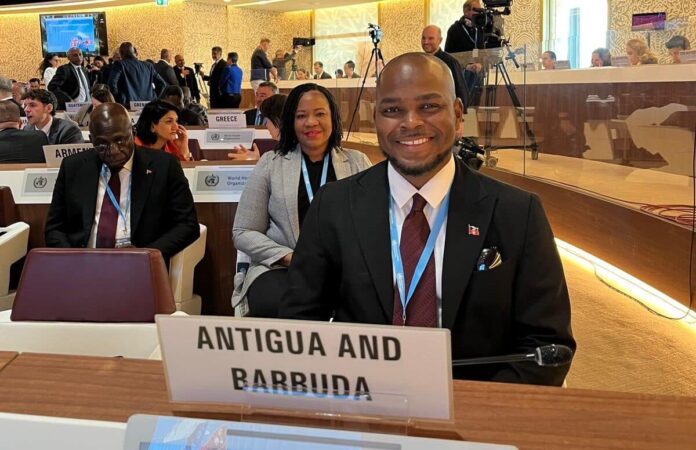Universal health insurance remains a long-term goal for Antigua and Barbuda, but government officials are urging caution as they work to strengthen the country’s health infrastructure before introducing a national system.
Speaking in an interview on ABS television following his return from the 78th World Health Assembly in Geneva, Junior Health Minister Senator the Honourable Michael Joseph acknowledged that the issue of universal health coverage was a key topic during international deliberations.
However, he stressed that implementing such a system locally will require careful groundwork to avoid unintended financial burdens.
“People have to understand it’s one of those processes that you have to take your time to develop,” Joseph said. “If it’s not done properly, it can actually cost you a lot more than what you’re spending right now.”
He explained that for a national health insurance programme to succeed, Antigua and Barbuda must first ensure its three-tiered healthcare system—primary, secondary, and tertiary—is functioning efficiently.
A properly working primary healthcare system, he noted, could prevent many patients from reaching the hospital stage, where costs significantly escalate.
Citing an example, Joseph said the cost of treating an asthma attack at the hospital level far exceeds what it would cost to manage the condition through community clinics.
“The cost of hospitalisation is significant for one patient, as opposed to treating that at primary care and stopping it from escalation,” he added.
Efforts are already underway to reduce pressure on Mount St. John’s Medical Centre through a planned upgrade of 10 community clinics, backed by $10 million in grant funding from the Green Climate Fund.
The Ministry of Health is also working to strengthen its strategic plan, align goals with the Sustainable Development Goals (SDGs), and improve data collection across key health indicators, including mental health.
Another critical aspect of future health reform, Joseph noted, is the rollout of the SELMA programme, a digital platform that will integrate communication between clinics, private providers, and the hospital, streamlining data sharing and improving service delivery.
While universal health insurance remains on the table, Joseph concluded that the government’s priority for now is building a system that is sustainable, equitable, and ready to meet the needs of the population.
“People may not see it, but the work is happening behind the scenes to make sure that once it’s rolled out, we have a foolproof system that works immaculately for everyone.”
The government has yet to announce a timeline for the introduction of the programme.


